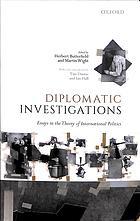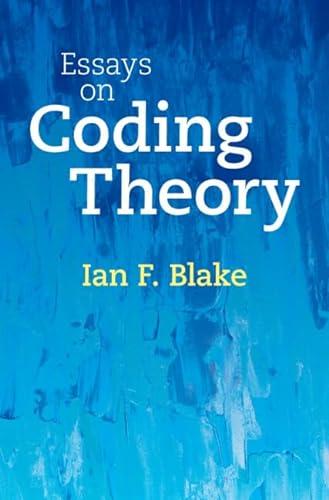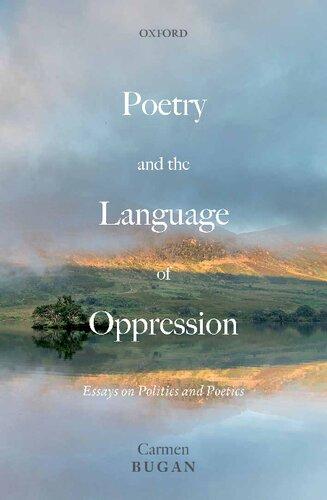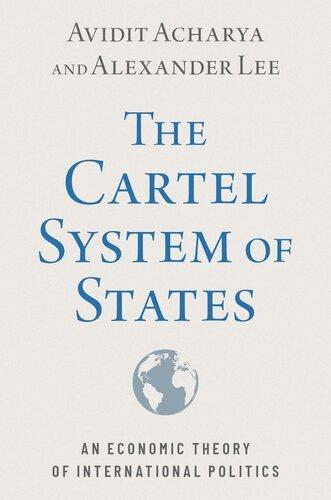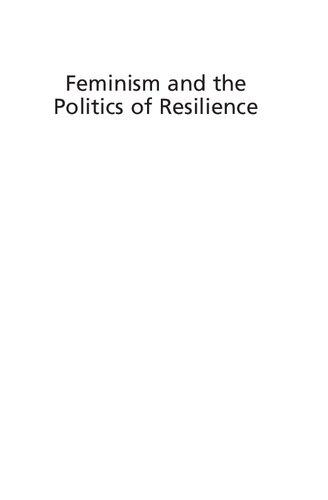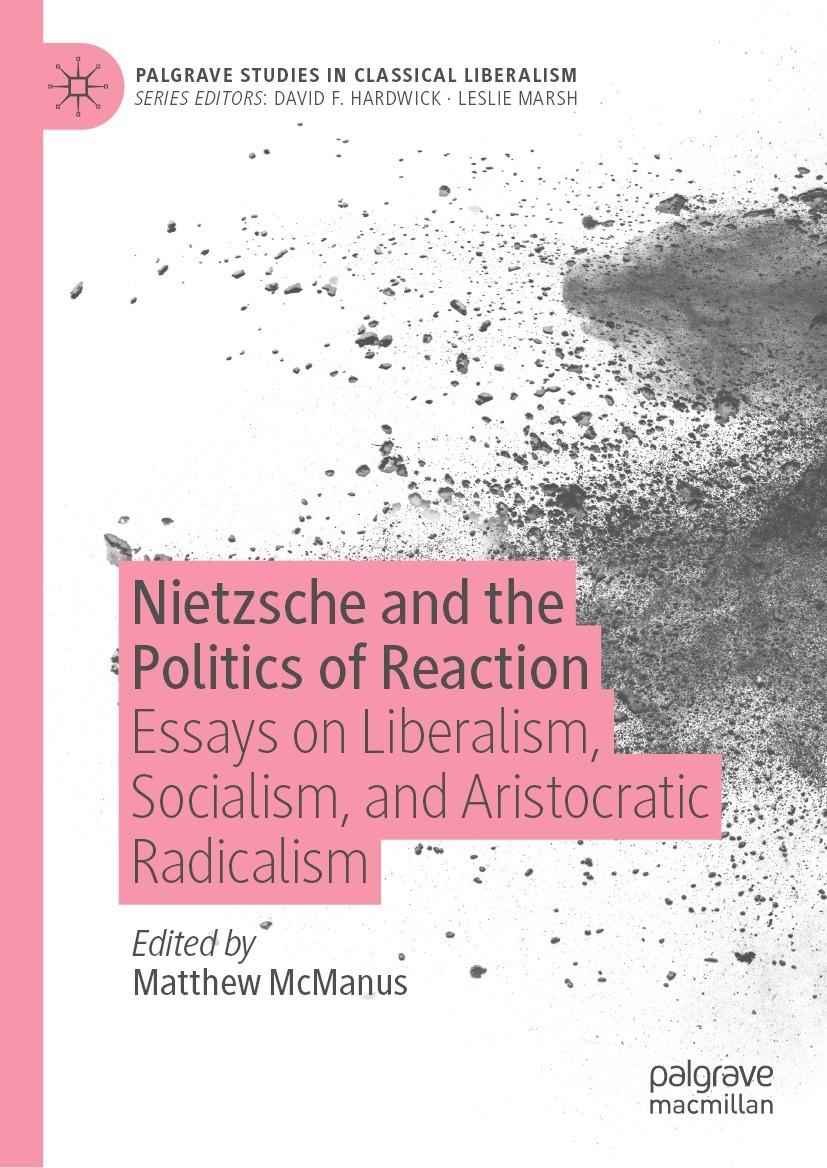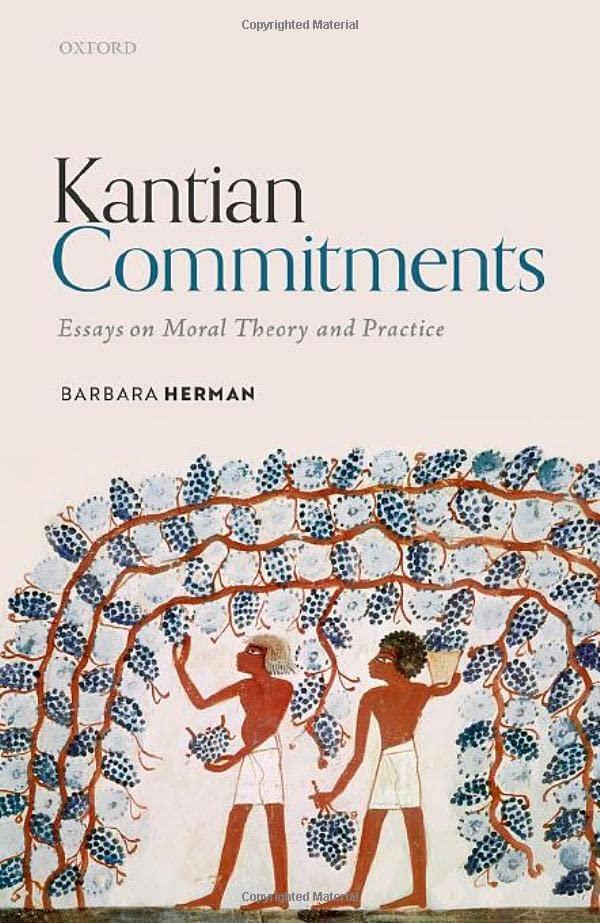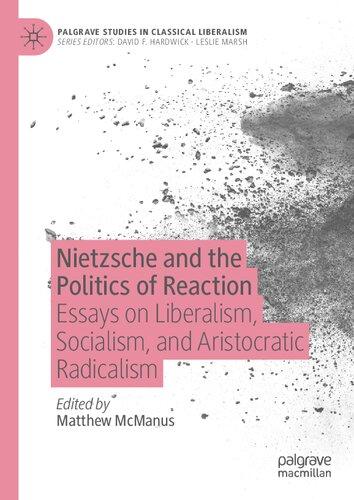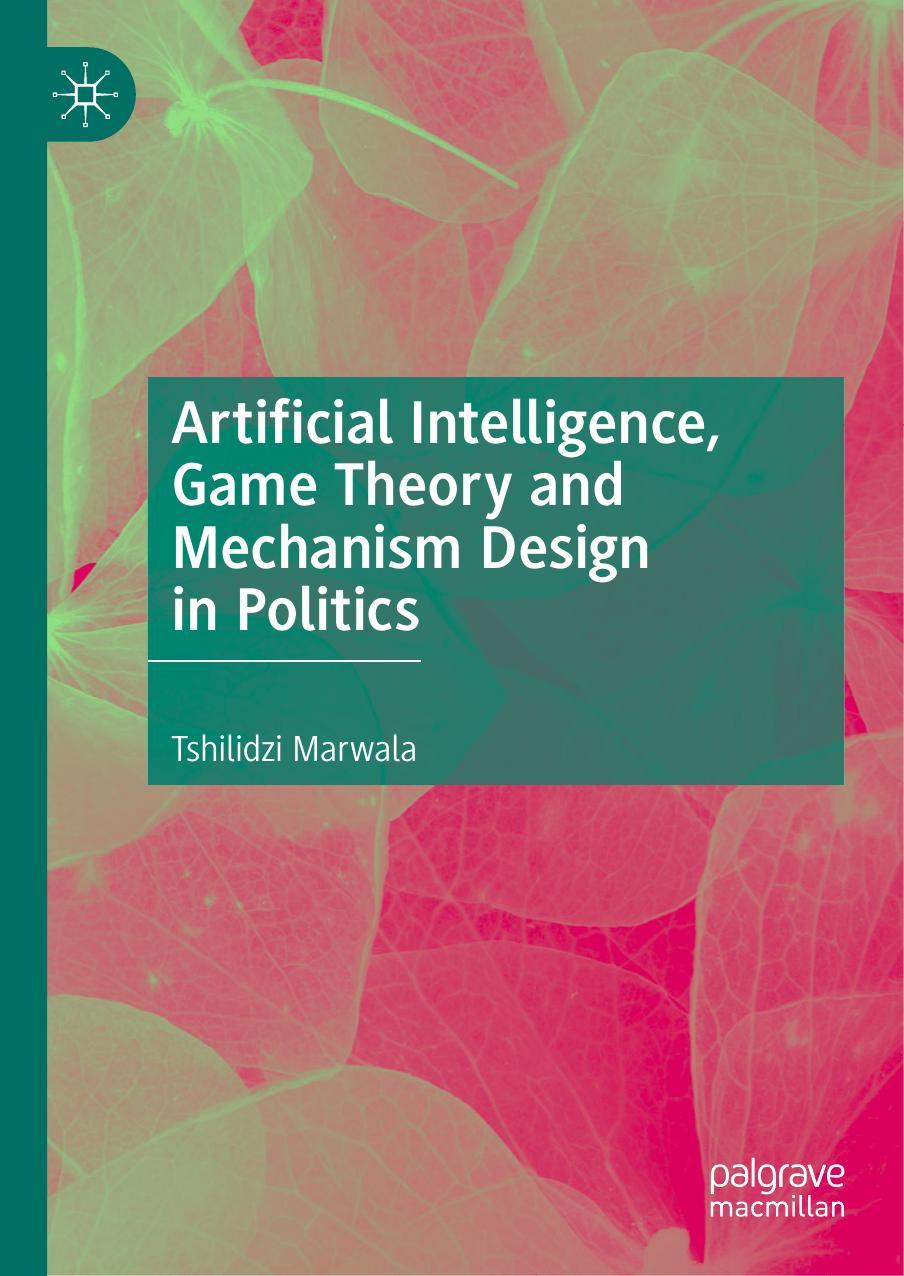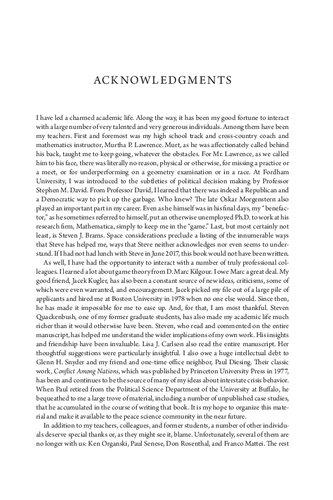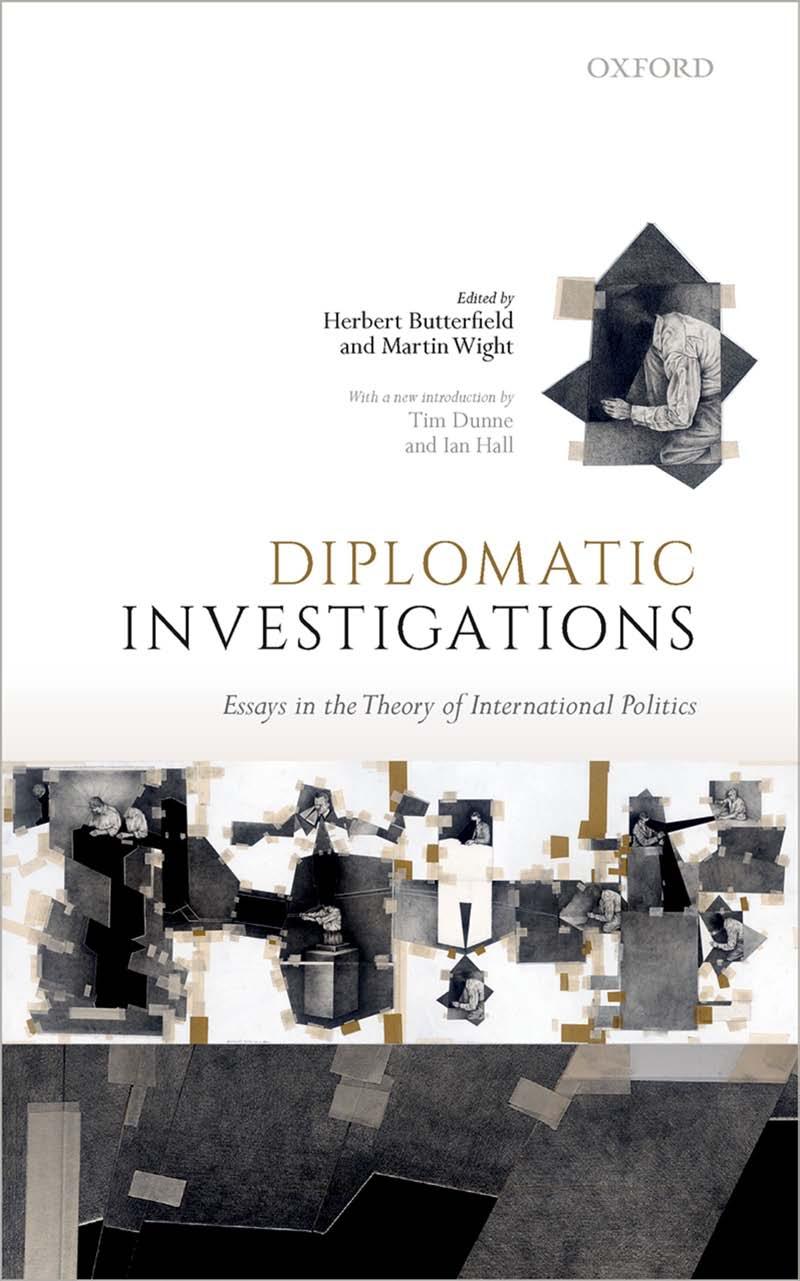IntroductiontotheNewEdition
IanHallandTimDunne
Onlyafewbooksinthe fieldofInternationalRelations(IR)canbecalled iconic. DiplomaticInvestigations isoneofthem.EditedbyHerbertButterfield andMartinWight,itbringstogethertwelvepapersdeliveredtoearlymeetingsoftheBritishCommitteeontheTheoryofInternationalPolitics, includingseveralclassicessays:Wight’ s ‘WhyIsThereNoInternational Theory?’ and ‘WesternValuesinInternationalRelations’,HedleyBull’ s ‘SocietyandAnarchyinInternationalRelations’ and ‘TheGrotianConceptionofInternationalSociety’,andthetwocontributionsmadebyButterfield andbyWighton ‘TheBalanceofPower’.Individuallyandcollectively,these chaptershaveinfluencednottheEnglishschoolofinternationalrelations,¹ butalsoarangeofotherscholarsacrossthe fieldofIR.²
DiplomaticInvestigations was firstpublishedatacriticaljuncture,inthe mid-1960s.Atthattime,argumentswereragingonbothsidesofthe Atlantic andacrossit abouthowinternationalrelationsshouldbe approachedbyscholars.Thetraditionalview,establishedduringtheinterwaryearsandheldbybothrealistsandliberals,wasthatinternational relationsconstitutedarealmofsocialinteractiondistinctfromothers andespeciallyfromdomesticpolitics.Assuch,ithaditsownpractices,rules, andnorms,oughttohaveitsownbodyoftheory,anddeservedtobethe
¹OntheevolutionandtheargumentsoftheEnglishSchool,seeespeciallyTimDunne,Inventing InternationalSociety:AHistoryoftheEnglishSchool (Basingstoke:Macmillan,1998),Brunello Vigezzi, TheBritishCommitteeontheTheoryofInternationalPolitics(1954–1985):TheRediscovery ofHistory (Milano:EdizioniUnicopli,2005),AndrewLinklaterandHidemiSuganami, TheEnglish SchoolofInternationalRelations:AContemporaryReassessment (Cambridge:CambridgeUniversity Press,2007)andBarryBuzan, AnIntroductiontotheEnglishSchoolofInternationalRelations: TheSocietalApproach (Cambridge:Polity,2014).
²Take,forexample,Wight’ s ‘WhyistherenoInternationalTheory?’,whichhasprovokeda seriesofsimilararticlesexploringotherareasofpastandpresentinternationalthought, includingJustinRosenberg, ‘WhyistherenoInternationalHistoricalSociology?’ European JournalofInternationalRelations 12(3)(2006),pp.307–340;YaqingQin, ‘Whyisthereno ChineseInternationalRelationsTheory?’ InternationalRelationsoftheAsia-Pacific 7(3)(2007), pp.313–40;andCynthiaWeber, ‘WhyIsThereNoQueerInternationalTheory?’ European JournalofInternationalRelations 21(1)(2015),pp.27–51.
focusofitsownacademicdiscipline,oratleastarecognizedsub-discipline withinpoliticalscience.Thetraditionalistsdisagreedamongthemselves,of course,aboutwhethertheyoughttofocusonanarchy,states,andpower,as therealistsbelieved,oronorganizationsandinstitutions,asliberalsthought, buttheyagreedthatIRdidorshouldexistasanautonomousentitywiththe academy.³
Duringthe1950sand1960s,theseargumentsweresubjectedtointense criticismbybehaviouralists,whoarguedthatinternationalrelationsdidnot havepractices,rules,ornormsdifferentfromanyotherrealmofsociallife, andthatthesocialsciencesoughttobeunifiedwithacommonmethod and ideally ageneraltheoryofsocialbehaviour. ⁴ Inresponse,during whatbecameknownasthe ‘SecondGreatDebate’,classicalrealistsand liberals,includingpioneeringscholarsliketheFrenchmanRaymondAron andtheGerman-AmericanHansJ.Morgenthau,foughtalongrearguard actiontodefendtheautonomyofIRandtheirso-calledtraditionalist approachfromthebehavouralists,asthelattertriedtounifythesocial sciences,methodologicallyandtheoretically.⁵
DiplomaticInvestigations spokedirectlytothesedebates,weighingin onthesideoftraditionalists,whilekeepingadistancefromsomeaspects ofAmericantraditionalism,especiallyitspragmaticconcernwithpolicy relevance.⁶ Theeditorsknewboththetraditionalistandthebehavouralist
³ForcontemporaryviewsofthisdebateintheUnitedStates,seeespeciallyKlausKnorrand JamesN.Rosenau(eds), ContendingApproachestoInternationalPolitics (Princeton,NJ: PrincetonUniversityPress,1969).Onbackgroundtothesedebates,seeBrianC.Schmidt, ThePoliticalDiscourseofAnarchy:ADisciplinaryHistoryofInternationalRelations (Albany, NY:SUNYPress,1998),pp.189–225.
⁴ InIR,advocatesofthisnewapproachincluded,intheUnitedStates,MortonKaplan, authorof SystemsandProcessinInternationalPolitics (NewYork:JohnWileyandSons,1957), andintheUnitedKingdom,theAustralianJohnW.Burton,whoseworksincluded InternationalRelations:AGeneralTheory (Cambridge:CambridgeUniversityPress,1965).Seealso FrederickDunn, ‘ThePresentCourseofInternationalRelationsResearch’ , WorldPolitics 2(1) (1949),pp.80–95.
⁵ SeeespeciallyRaymondAron, PeaceandWar:ATheoryofInternationalRelations,trans. RichardHowardandAnnetteBakerFox(London:WeidenfeldandNicolson,1966),andfor HansJ.Morgenthau’sviewofbehaviouralism,see ‘CommonSenseandTheoriesofInternationalRelations’ , JournalofInternationalAffairs 21(2)(1967),pp.207–14.Onthetensions betweenpoliticalrealistsandbehaviouralists,seealsoNicolasGuilhot(ed.), TheInventionof InternationalRelationsTheory:Realism,theRockefellerFoundation,andthe1954Conferenceon Theory (NewYork:ColumbiaUniversityPress,2011).
⁶ Onpolicyrelevanceandtheriseofpoliticalrealism,see interalia JoelH.Rosenthal, RighteousRealists:PoliticalRealism,ResponsiblePower,andAmericanCultureintheNuclear Age (BatonRouge,LA:LouisianaStateUniversityPress,1991)andontheinfluenceof behaviouralism,seeDavidEaston, ‘PoliticalScienceintheUnitedStates:PastandPresent’ , InternationalPoliticalScienceReview 6(1)(1985),pp.137–41.
argumentswell,asbothButterfieldandWighthadbeeninvolvedsincethe late1940sinbothBritishandtransatlanticconversationsaboutIR,its statusasaacademicdiscipline,itsmethods,andthepressuresgenerated onthe fieldbygovernments. ⁷ TheyhadeachvisitedtheUnitedStatesona severaloccasions:Butterfielddeliveredapapertothegreatandthegoodof AmericanIRatColumbiain1956;Wightspentthe1956–7academicyear teachinginMorgenthau’splaceattheUniversityofChicagowhilethe lattertookleave.⁸ Now,inthemid-1960s,theyused DiplomaticInvestigations asameansoflayingouttheirpreferredunderstandingofwhatIR shouldlooklikeandhowitoughttobeapproachedatatimeatwhichnot onlywasthe fi eldunderbehaviouralistpressure,butalsoasinterestinIR wasgrowinginBritishuniversitiesamongbothstudentsandresearchers.⁹
ThebookwasthusconceivedasadefenceofwhatChrisBrownaptly termsthe ‘premisethatIRisadistinctive, suigeneris,discourse’ andofa traditionalistmodeofitsanalysis.¹⁰ ButterfieldandWightacknowledged thatthetheoryofinternationalpoliticswasa ‘regionthatstillcallsfornew approaches’,butarguedthat ‘traditionalism’ orthe ‘classicalapproach’ was stillthebestwaytostudythe field.¹¹Theycontrastedtheirstancewiththat laidoutbytheparallelAmericanCommitteeinanearliervolume, TheoreticalAspectsofInternationalRelations (1959),expressingconcernaboutwhat
⁷ OnButterfieldandWight’searlyviewsaboutIR,seeIanHall, ‘History,Christianityand Diplomacy:SirHerbertButterfieldandInternationalRelations’ , ReviewofInternationalStudies 28(4)(2002),pp.727–9andIanHall, TheInternationalThoughtofMartinWight (NewYork: Palgrave,2006),pp.88–97.
⁸ TherespondentforButterfield’ spaperon ‘MoralityandPoliticalProcessinInternational Affairs’ wasKennethN.Waltz(MichaelBentley, TheLifeandThoughtofHerbertButterfield: History,ScienceandGod (Cambridge:CambridgeUniversityPress,2011),p.331.AtChicago, Wightgavethe firstversionofthe ‘InternationalTheory’ lecturessubsequentlylaudedatthe LondonSchoolofEconomicsandlaterreconstitutedandpublishedas InternationalTheory: TheThreeTraditions,ed.BrianPorterandGabrieleWight(London:LeicesterUniversityPress, 1990).
⁹ Onthedevelopmentofwhatwemightcallthepre-disciplineofIRinBritainduringthis period,seeIanHall, DilemmasofDecline:BritishIntellectualsandWorldPolitics,1945–1975 (BerkeleyandLosAngeles,CA:UniversityofCaliforniaPress,2012).
¹⁰ Incorrespondencewiththeauthors(16February2016),ChrisBrownobservedthat DiplomaticInvestigations ‘representedthebestthatscholarshiphastooffergiventhepremise thatIRisadistinctive, suigeneris,discourse andthusformsajumpingoffpointforthosewho wishtocontestthispremise’
¹¹HerbertButterfieldandMartinWight, ‘Preface’,thisvolumep.v.Theterms ‘traditionalism’ and ‘classicalapproach’ werealsoprominentinthesimultaneousdebatebetweenHedley BullandMortonKaplan.SeeHedleyBull, ‘InternationalTheory:TheCaseforaClassical Approach’ , WorldPolitics 18(3)(1966),pp.361–77,andMortonKaplan’ sresponse, ‘TheNew GreatDebate:TraditionalismversusScienceinInternationalRelations’ , WorldPolitics 19(1) (1967),pp.1–20.
theysawasthepragmatictendenciesofsignificantelementsofAmerican IR.¹²Butter fieldandWightdeclaredthattheywere ‘moreconcernedwith thehistoricalthanthecontemporary,withthenormativethanthescientific, withthephilosophicalthanthemethodological,withprinciplesthanpolicy’ . Thefocusoftheirresearchwasonwhattheycalledthe ‘diplomaticcommunity’ ofpractitioners,its ‘functions’ , ‘obligations’,and ‘testedandestablishedprinciplesofpoliticalintercourse’.¹³Their ‘procedure’ was ‘empirical andinductive ’ andtheir ‘pointofview’ was ‘historical’.Andthroughoutthe essays,therewasa ‘pervadingmoralconcern’.¹⁴
Theseviewsset DiplomaticInvestigations apartfrommuchAmerican scholarshipoftheperiodandhelpedtogroundtheEnglishSchoolasit evolvedintheyearsthatfollowed.Theyalsodistinguishedtheworkofthe book’scontributorsfromasignificantproportionofBritishacademicsofthe time.Fromthe1920sonwards,anumberofscholarsintheUnitedKingdom hadbeenexperimentingwithabroadrangeofnewsocialscientificmethods andtechniques,andthistrendcontinuedinthepost-warperiod.InIR,the mostprominentwereindividualssuchasC.A.W.Manning,theMontague BurtonProfessorofInternationalRelationsattheLondonSchoolofEconomics(LSE),andGeorgSchwarzenberger,professoratUniversityCollege, London,bothofwhompioneereddistinctivesociologicalapproachesto IR.¹⁵ Alongsidethemwereanumberofothersworkingwithalternative methodsandtheories,includingscholarsworkingonquantitativestudiesof inter-stateconflict,likeLewisFryRichardson,andbehaviouralistaccounts oftheinternationalsystem,likeJohnW.Burton.¹⁶
DiplomaticInvestigations wasamanifestoaimednotsimplyatAmerican IR,butalsoatthosepartsofBritishIRthatwereexperimentingwithnew approaches.Itaimedtohighlightthevirtuesof ‘traditionalism’ incontrastto
¹²ButterfieldandWight,'Preface',p.4.WilliamT.R.Fox(ed.), TheoreticalAspectsof InternationalRelations (NotreDame,IN:UniversityofNotreDamePress,1959).Thebook includedessaysbyPaulH.Nitze,HansJ.Morgenthau,W.T.R.Fox,KennethN.Waltz,Charles P.Kindleberger,ArnoldWolfers,andReinholdNiebuhr.
¹³ibid.,p.vi.¹⁴ ibid.,pp.vi–vii.
¹⁵ TheliteratureonManningisfairlylarge,butseeHidemiSuganami, ‘C.A.W.Manning andtheStudyofInternationalRelations’ , ReviewofInternationalStudies 27(1)(2001), pp.91–107.TheliteratureonSchwarzenbergeriscomparativelythin.Foradiscussionofhis work,seeHall, DilemmasofDecline,pp.41–3,46–7.
¹⁶ OnRichardson,seeOliverM.Ashford, Prophet orProfessor?TheLifeandWorkofLewis FryRichardson (Bristol:Hilger,1985),andonBurton,seeMartinGriffiths, ‘JohnBurtonversus InternationalRelations:TheCostsofCriticism’ , AustralianJournalofInternationalAffairs 67(1)(2013),pp.55–70. 4
thesemorenovelwaysofstudyingthe field.Thisshouldcomeasnosurprise: noneofthecontributorswerepoliticalscientists evenaspracticedin Britain orsociologistsoreconomists.Rather,mostofthemwerehistorians scepticalonthewholeaboutthesocialsciencesandaboutthesocialscientificapproachestothestudyofpoliticsandinternationalrelationsthat emerged,andgrewinstrength,inthe firsthalfofthetwentiethcentury.¹⁷
Tolocate DiplomaticInvestigations inthiswayisnot,however,tosuggest thatitisanantiquariancurio,stilllesssomekindofreactionaryscreed.The bookisiconicbecauseitaskeddifficultquestionsofIRatacrucialmoment, asthe fieldwasslowlycoalescinginBritainandchangingrapidlyonthe othersideoftheAtlantic.Itremainsrelevantbecauseitwasandremainsan inspirationtoscholarsalsoconvincedthatunderstanding ‘international society ’ requiresaninterpretiveapproachthatdelvesintothemeaningof socialactionsforthevariousagentsinvolvedininternationalpolitics,today andinthepast.
TheMakingoftheBook
DiplomaticInvestigations isacompilationofessayswrittenfortheBritish CommitteeontheTheoryofInternationalPolitics,agroupbroughttogether byHerbertButterfieldwithfundingfromtheRockefellerFoundation.¹⁸ ButterfieldbegantoconstructtheCommitteein1958andheledituntil hisretirementin1968.The firsttwomembersheinvitedtojoinwerehis formerstudent,DesmondWilliams,thenprofessorofhistoryatUniversity College,Dublin,andMartinWight,thenreaderintheDepartmentof InternationalRelationsattheLSE.Aftersomedebate,thesethreeagreed toinvolvethephilosopherandtheologianDonaldMacKinnon,whom Wighthadknownsincehisundergraduatedays,andthemilitaryhistorian andstrategist,MichaelHoward.ButterfieldthenaddedthediplomatAdam Watson,anotherofhisformerstudents,and foratime thecivilservant WilliamArmstrong.¹
¹⁷ IanHall, ‘TheEnglishSchool’sHistoriesandInternationalRelations’,inBrianSchmidt andNicolasGuilhot(eds) HistoriographicalInvestigationsinInternationalRelations (New York:Palgrave,2019).
¹⁸ ForanexhaustivestudyoftheworkingsoftheCommittee,seeVigezzi, BritishCommittee ontheTheoryofInternationalPolitics
¹⁹ Dunne, InventingInternationalSociety,p.91.
Notoriously,otherswhomButterfieldmighthaveinvited,giventheir expertiseinthearea,werenot.CambridgecolleaguesofButter fieldwith pastorpresentinterestsinIR,likethehistoriansE.H.Carrand F.H.Hinsley,wereexcluded.²⁰ SowasCharles(C.A.W.)Manning Wight’sheadofdepartmentandtheLSE’sMontagueBurtonProfessor andGeoffreyGoodwin,Manning’ssuccessorinbothroles.²¹Onlyone personfromStAntony’sCollege,Oxford,themaincentreforinternational historyandareastudiesattheUniversity,wasaskedtojointhegroup:the SinologistGeoffreyHudson.Oxford’sMontagueBurtonProfessorofInternationalRelations,thediplomatichistorianAgnesHeadley-Morley,was nevermentionedintheCommittee’ssurvivingcorrespondence.Nor,for thatmatter,wasGeorgSchwarzenberger,wholedthechargeinthepost-war yearsforsociologicalapproachestoIRfromUniversityCollege,London.²²It isalsosignificantthatnointernationallawyer,economist,orsociologistwas involved,atleastattheoutset,andthatnopoliticalscientistorpolitical theoristwasincluded.Itissignificanttoothattheacademicbackgroundsof thosewhowereinvitedwerepredominantlyinhistory.Butterfieldand Wight,inparticular,hadlongbeenconvincedthatIRshouldbeinformed byhistoryandhistorians,ratherthanbyothers.²³
ThisisnottosaythatButterfieldandtheothermembersoftheoriginal CommitteewantedthegrouptoconfineIRtohistoryorhistoricalstudies. Thechairmanwasclearonthispoint,insistinginanearlydiscussionofthe ‘objectsoftheCommittee’ thattheymusteschew ‘diplomatichistory’ ,as wellasavoiding ‘merejournalisticdiscussionofcontemporaryaffairs’.²⁴ The aimoftheCommitteewasdifferent:totrytoelucidatethe ‘fundamental principles’ ofinternationalrelations,bothpracticalandethical,usingthe techniquesandmindsetofthehistorian.Inotherwords,theywereto explorethenormativestructureofwhatWighttermed,inthatearly
²⁰ ButterfieldfeudedwithCarroveranumberofyearsandindeedovermanyissues,both personalandprofessional.Incorrespondence,ButterfielddescribedHinsleyas ‘abitheavyhanded’ and ‘theordinarykindofdiplomatichistorianwhorefusestoquestioncurrent assumptions’ (ButterfieldtoWilliams,28April1958, ButterfieldMS 531/W270).Theearly debatesovermembershiparechronicledinVigezzi, BritishCommitteeontheTheoryof InternationalPolitics,pp.111–16andpp.145–8.
²¹Dunne, InventingInternationalSociety,pp.92–4.
²²SeeGeorgSchwarzenberger’ s PowerPolitics:AStudyofInternationalSociety,2nded. (NewYork:FrederickA.Praeger,1951),aswellasHall, DilemmasofDecline,pp.41–4.
²³SeeBentley, LifeandThoughtofHerbertButterfield,pp.320–44;Hall, International ThoughtofMartinWight,especiallypp.87–110.
²⁴‘DiscussionontheObjectsoftheCommittee’,20September1959,BritishCommittee Papers5,ChathamHouse,London,p.1.
discussion, ‘internationalsociety’.²⁵ Thisimpliedanalysesofthetraditionsof internationalthought,pastandpresentdiplomaticpracticeandtheprinciplesunderlyingit,andtheethicsofinternationalpolitics.
Tocarryoutthesetasks,theBritishCommittee firstmetatPeterhouse, Butterfield’scollegeatCambridge,inJanuary1959,andthreetimesayear thereafter.Ateachmeetingbetweentwoandsixpaperswerecirculatedin advanceandpresentedbytheirauthors,eachaddressinganagreedtheme.²⁶ Onoccasion,guestswerealsoinvitedtodeliverpapersorsimplytoparticipateintheconversation.Butterfieldtookcopiousnotesofwhatwassaidat theearlymeetings.²⁷ Afterthe firstfew,duringwhichtherewerelengthy discussionsabouttheirsubject-matterandthepurposeoftheCommittee, themembersdecidedtheyneededaspecialistinIRafterall,andadded HedleyBull,anAustralianwhohadstudiedphilosophyatSydneyand Oxford,beforejoiningWighttoteachattheLSE.
By1961theBritishCommitteehadproducedenoughpaperstoconsider gettingthempublished,andthejobofeditingthemandsecuringacontract forabookwasgiventoButterfield,aschair.Unfortunately,heacquitted neitherexpeditiously.Butter field,thensixty-oneyearsold,washeavily involvedinbothuniversityadministrationandacademicintrigue,atboth ofwhichheexcelled.²⁸ Inadditiontohisprofessorialduties,in1955hehad becomemasterofPeterhouse,aposthehelduntilhisretirementin1968.In 1959,thesameyearinwhichheconvenedthe firstmeetingoftheBritish Committee,Butterfieldalsobeganatwo-yearstintasvice-chancellorofthe UniversityofCambridge.In1963,when DiplomaticInvestigations should haveappearedinprint,hewasappointedRegiusProfessorofHistory,apost thatcarriedadditionalresponsibilitiesintheHistoryFaculty.
Butterfield’stardinessingettingtheessayseditedandsubmittedtoa publisherannoyedtheauthorsandputatriskanewtrancheoffunding fromRockefellerforafurthersetofBritishCommitteemeetings.² ⁹ To Wight,inlateJanuary1964,Bullwascharacteristicallyvociferousand blunt,complainingthatButter fieldhad ‘behaveddisgracefullyoverthis volume’.BullurgedWightthatthetwoofthemconfronthimwithan
²⁵ ibid.,p.2.
²⁶ AvividpictureofCommitteeproceedingscanbefoundinMichaelHoward, Captain Professor:ALifeinWarandPeace (London:Continuum,2006),pp.159–60.
²⁷ ThepapersarelistedinVigezzi, BritishCommittee,pp.327–48,andsomeofButterfield’ s notesfromtheearlymeetingsarereprintedpp.357–97.
²⁸ SeeespeciallyBentley, LifeandThoughtofHerbertButterfield,pp.345–53.
²⁹ OnButterfield’sconcernsaboutfunding,seeDunne, InventingInternationalSociety, p.104.
‘ultimatum’ to ‘getonwithit,ortohavesomeoneelsedoso,orabandonthe projectandreleasethepapersforpublicationelsewhere’.³⁰
Intheevent,Butter fieldallowedWighttobecomehisco-editor,andthe manuscriptwassenttoCambridgeUniversityPressforconsideration.The processdidnotgowell.InAugust1965thecommissioningeditor, R.W.David,wrotetoButterfieldwithbadnews.Theanonymousreviewers didnotlikethemanuscript,withonesubmittingaroot-and-branchattack. ButterfieldsuspectedhisCambridgecolleagueF.H.Hinsleywasresponsible, attributinghiscolleague’shostilitytohisbeingin ‘acuriousstate’ , ‘impatient’ forapromotion, ‘veryconscious’ thathehadnotbeeninvitedto becomeamemberoftheBritishCommittee,anddogmaticabouthis preferredtheoryofinternationalpolitics.³¹However,itismoreplausible, thatthereviewerwaseitherAustralianJohnBurton,thenatUniversity College,London,orMichaelBanks,whohadjustjoinedtheLSE.³²Neither weresympathetictothe ‘traditionalism’ of DiplomaticInvestigations, favouringastheydidbehavouralistandMarxistapproaches.
Thereviewer’sreportimpliedtheessayswerestale,arguingthatifthey had ‘beenprintedwhentheywerewritten,onecouldhavebeenmore enthusiasticaboutthem’.Thissuggestionwassomewhatunfair,asthe editorsandauthorshadtakenpainstoensurethattheessayswerenot datedbydiscussionofcontemporaryhistory.Thereportalsocriticizedthe book’slackofengagementwiththecontemporaryliteratureontheirsubjects,especiallythatbeingproducedbyAmericanscholars.Thiswasamore reasonablecriticism,butonethatarguablymissedthepointofthebook, whichwastodemonstratethevalueoftraditionalism,nottocritique alternatives.³³Inanyevent,acontractwasnotofferedbyCambridge. Instead,Butter fieldandWightapproachedAllen&Unwin,whowere moreenthusiasticabouttheproject.
Theversionof DiplomaticInvestigations ButterfieldhadoriginallysubmittedtoCambridgeUniversityPresshadincludedseventeenoreighteen essays fiveorsixmorethanwerepublishedinthe finalbook.Twoessays
³⁰ HedleyBulltoMartinWight,31January1964, WightMS 2331/9,BritishLibraryof PoliticalandEconomicSciences,London.
³¹HerbertButterfieldtoMartinWight,13August1965, WightMS 248.
³²RogerEpp, ‘TheBritishCommitteeontheTheoryofInternationalPoliticsandCentral FiguresintheEnglishSchool’,inRobertDenemark(eds), TheInternationalStudiesEncyclopedia (Oxford:BlackwellPublishing,2010),onlineat:http://www.isacompendium.com/sub scriber/tocnode.html?id=g9781444336597_yr2014_chunk_g97814443365974_ss1-1.
³³R.W.DavidtoHerbertButterfield,11August1965, WightMS 248.Forthewiderstory, seeDunne, InventingInternationalSociety,pp.104–5.
onscienceandinternationalrelationsweredroppedpriortothesubmission ofthemanuscripttoAllen&Unwin,leaving fifteenorsixteen.³⁴ Asa conditionofcontract,thepublisherrequestedthatthemanuscriptbeshortenedfurther,andWighttookthedecisiontoexciseanotherfourchapters.³⁵ ThesewereMichaelHoward’spaperontheconceptof ‘VitalInterests’ , DonaldMacKinnon’sidiosyncraticallytitled ‘WhatIstheReal “Persona” oftheCommunityandWhatIstheMinimumRequiredtoMaintainIt?’ , AdamWatson’ s ‘InterestsofStateOtherThanVitalInterests’,andDesmondWilliams ’‘ThePrimacyofForeignPolicy’.Withthesecutsmade, Wightthendraftedthepreface,whichwasthenrevisedbyButterfield,and themanuscriptwassubmittedtothepublisherinOctober1965.
TheContributors
Between1959and1984theBritishCommitteewasdominatedbyhistorians, withsomeinvolvementfromphilosophers(likeMacKinnon)andpractitioners(likeWatson).Thisreflecteditschairman’ssuspicionofpolitical scientistsandpoliticaltheorists,specialistsinIR,andindeedcontemporary historiansworkingoninternationalrelations.Theauthors andtheBritish Committee werealsodominatedbyOxbridge:atthetime Diplomatic Investigations waspublished,twoofthecontributorsheldpostsatCambridge;theremainingfourhadstudiedortaughtatOxfordatsomepointin theircareers.Allofthemweremale;indeed,onlythreewomen CoralBell, AgnesHurewitz,andZaraSteiner evergavepapersatBritishCommittee meetings,andofthoseonlyBellbecameafullmemberoftheCommittee.³⁶
Theoldestcontributorto DiplomaticInvestigations ,HerbertButterfield (1900–79),hadreadhistoryatPeterhouse,Cambridge,justaftertheFirst WorldWar.Hebecomeafellowofthatcollegesoonaftercompletinghis degree,andthenprofessorofmodernhistoryin1944.Anadeptacademic politician,healsoservedasMasterofPeterhousebetween1955andhis retirementin1968andasvice-chancellorbetween1959and1961.In1963,
³⁴ ThetwoessayswereMichaelHoward’ s ‘ScientificDevelopmentandInternationalRelations’ andWight’ s ‘HasScientificAdvanceChangedtheNatureofInternationalPoliticsin Kind,notmerelyinDegree?’,bothpresentedatthefourthmeetingoftheCommittee,inJanuary 1960.SeeDavidtoButterfield,11August1965, WightMS 248,andVigezzi, BritishCommittee, p.174,note3.
³⁵ Vigezzi, BritishCommittee,p.175,note5.
³⁶ OnBellandhercontributiontoIR,seeespeciallyDesmondBallandSherynLee(eds), PowerandInternationalRelations:EssaysinHonourofCoralBell (Canberra:ANUPress,2014).
hewaselevatedtotheRegiusChairinHistory.Heretiredfrombothhis MastershipandhisChairin1968,sadlylapsingintoill-healthforthe final decadeofhislife,unabletocompleteaseriesofmajorprojects.³⁷
Butterfieldisbestknownforhisthirdbook,publishedearlyinhiscareer: hiselegantandelusiveessayon TheWhigInterpretationofHistory (1931), anattackonbothprogressivismandmoralisminhistoriography.Although hewrotemuchelse,heneverpublishedthegreatworkofanti-progressive, anti-moralistnarrativehistoryhearguablyshouldhavewritten,northe biographiesofthepoliticianCharlesJamesFoxandthehistorianHarold Temperleyherepeatedlypromised.Instead,hefocusedmostofhisefforts onaseriesofshort,beautifullywritten ‘littlegeneralbooks’,asheoncecalled them,³⁸ manyputtogetherfromlecturesortalksgivenatCambridgeand elsewhere.Theyincluded TheHistoricalNovel (1924), Napoleon (1939), The StatecraftofMachiavelli (1940), TheEnglishmanandhisHistory (1944), The OriginsofModernScience (1949), LibertyintheModernWorld (1951), ManonhisPast (1955)and GeorgeIIIandtheHistorians (1957),aswell astheposthumouslypublished TheOriginsofHistory (1981).Glimpsesof whatButterfieldcouldhavedonewithmoreconventionalhistoricalworks canbefoundintheforensic ThePeaceTacticsofNapoleon,1806 –1808 (1929)andthemorecontroversial GeorgeIII,LordNorth,andPeople, 1779–1780 (1949).
Butterfield’smostsignificantcontributionstothestudyofinternational relationswereaseriesofbooksbasedlargelyonseriesoflectures,including ChristianityandHistory (1949), HistoryandHumanRelations (1951),and Christianity,Diplomacy,andWar (1953),and InternationalConflictinthe TwentiethCentury (1960),aswellashisessaysin DiplomaticInvestigations and TheAberystwythPapers (1972),andhisMartinWightmemoriallecture on raisond’état.³⁹ Intheseworks,Butterfieldtriedtosketchoutanormative
³⁷ ThereareanumberofbiographiesofButterfield.Theyinclude:AlbertoR.Coll, The WisdomofStatecraft:SirHerbertButterfieldandthePhilosophyofInternationalPolitics (Durham,NC:DukeUniversityPress,1985),KeithSewell, HerbertButterfieldandtheInterpretationofHistory (Basingstoke:Palgrave,2005),C.T.McIntire, HerbertButterfield:Historian asDissenter (NewHaven,CT:YaleUniversityPress,2008),KennethMcIntyre, HerbertButterfield:History,Providence,andSkepticalPolitics (Wilmington,DE:ISIBooks,2011),andBentley, LifeandThoughtofHerbertButterfield.
³⁸ HerbertButterfieldtoDonaldMacKinnon,17August1959, ButterfieldMS 531(ii)/M18a, CambridgeUniversityLibrary.
³⁹ SeeButterfield, ChristianityandHistory (London:G.Bell&Sons,1949); Historyand HumanRelations (London:Collins,1951); Christianity,DiplomacyandWar (London:The EpworthPress,1953); InternationalConflictintheTwentiethCentury:AChristianView (London:RoutledgeandKeganPaul,1960); ‘TheBalanceofPower’ and ‘TheNewDiplomacy
theoryofinternationalrelationsthatmightguidediplomaticpracticeinthe ColdWar,atheorythatwastruetohisChristianfaithandtruetohis philosophyofhistory,thatavoidedmoralism,andthatbuiltontheenduring wisdom(ashesawit)ofeighteenth-centuryWhiggism.⁴⁰ Butterfieldfeared anddeploredtheintrusionofmoralandideologicalintransigenceinto internationalrelations,andblamedWilsonianidealismanditspost-war anti-Communistsuccessors,aswellasCommunistinternationalism,for thefrequencyandbrutalityofmodernconflictandthedestabilizationof thefragilemodusvivendithatunderpinnedinternationalsociety.Onlya kindofenlightenedandsophisticatedMachivellianism,Butterfieldbelieved, couldrestoreandsustaininternationalorderandprovidethebasisfora measureofinternationaljustice.⁴¹
G.F.(GeoffreyFrancis)Hudson(1903–74)hadamorevariedcareerthan Butterfield.Anacademic,bureaucrat,andjournalist,heplayedakeyrolein advancingthestudyofEastAsiaattheUniversityofOxford.⁴²Electeda fellowofAllSoulsCollege,Oxford,in1926,heservedwiththeForeign OfficeResearchDepartmentduringtheSecondWorldWar,andin1954 movedtoStAntony’sCollegetodirectitsFarEasternStudiesprogramme, whichhediduntilhisdeathin1974.Hewasaprolificauthor,writingfor manynewspapersandmagazines,including TheEconomist,andpublishing anumberofbooks,amongthem TheFarEastandWorldPolitics (1936), The HardandBitterPeace (1967),and FiftyYearsofCommunism (1968).Like Butterfield,Hudsondislikedmoralisticandideologicalpolitics,especially Communism,andfearednuclearweaponsandwhattheymightimply.His HardandBitterPeace wasbothanarrativehistoryoftheColdWaranda
andHistoricalDiplomacy’,thisvolume,pp.154–170andpp.203–214; ‘Moralityandan InternationalOrder’,inBrianPorter(ed.), TheAberystwythPapers:InternationalPolitics, 1919–1969 (London:OxfordUniversityPress,1972),pp.336–60;and Raisond’état:The RelationsbetweenMoralityandGovernment (UniversityofSussex:MartinWightMemorial Lecture,1975).
⁴⁰ Hall, ‘History,ChristianityandDiplomacy’,especiallypp.727–34.SeealsoColl, Wisdom ofStatecraft;PaulSharp, ‘HerbertButterfield,theEnglishSchoolandtheCivilizingVirtuesof Diplomacy’ InternationalAffairs 79(4)(2003),pp.855–78;KarlW.SchweizerandPaulSharp, TheInternationalThoughtofHerbertButterfield (Basingstoke:Palgrave,2007).
⁴¹SeeespeciallyButterfield, ‘MoralityandanInternationalOrder’,butseealsotheearlier piece, ‘TheScientificversustheMoralisticApproachinInternationalAffairs’ , International Affairs 27(3)(1951),pp.411–22.
⁴²RoderickMacFarquharandStuartR.Schram, ‘GeoffreyHudson(1903–1974)’ , TheChina Quarterly 58(1974),pp.229–30.SeealsoRichardStorry, ‘GeoffreyHudson,1903–74’,inIan Nish(ed.), CollectedWritingsofRichardStorry (LondonandNewYork:Routledge,2002), pp.281–84.
pleaforanovelmeansofaddressingthethreatofnuclearwar,arguingthat aninternationalinspectionregimeshouldbenegotiatedwiththeSovietsto lessentensionsandplacetheweaponsunderstrongercontrols. ⁴³
DonaldMackenzieMacKinnon(1913–94)wastheoddmanoutinthe earlyBritishCommittee.Aphilosopherandtheologian,hehadbeeneducatedatNewCollege,Oxford.Helaterbecamethe firstRegiusProfessorof MoralPhilosophyattheUniversityofAberdeenandthenNorris-Hulse ProfessorofDivinityatCambridge.Acharismaticandinfluentialteacher,he countedthenovelistIrisMurdochandtheerstwhileArchbishopofCanterburyRowanWilliamsamonghispupils.Hewastheauthorofanumberof books,including AStudyinEthicalTheory (1957)and TheProblemof Metaphysics (1974).⁴⁴ AsanundergraduateatOxford,hebecamefriends withMartinWight,hissponsorfortheBritishCommittee.Hiscontributions toitsmeetingswereidiosyncratic Howardlatercalledhim ‘acharmingman butonewhosediscourseIfoundalmostunintelligible’—andafterthe first coupleofmeetingsWightapparentlyexpressedsomeregretaboutsupporting hismembership.⁴⁵ Hegavepapersontopicslike ‘The “PhilosophyofHistory” andtheProblemsofInternationalRelationships’—aresponsetoWight’ s closingremarksin ‘WhyIsThereNoInternationalTheory?’—andthe ‘NotionoftheChristianStatesman’,aswellashispiecein DiplomaticInvestigations on ‘NaturalLaw’ . ⁴⁶ Arguablyhismostlastingcontributiontothinkingaboutinternationalrelations,however,ishisMartinWightMemorial Lectureon ‘PowerPoliticsandReligiousFaith’,inwhichhereflectedonthe ethicaldilemmasinherentinpoliticalaction,aswellasthethoughtofhis lifelongfriend.⁴⁷ Liketheotherauthorsin DiplomaticInvestigations,healso ponderedthechallengesposedbynuclearweapons,publishingabookonthe topicin1981.⁴⁸
⁴³G.F.Hudson, TheHardandBitterPeace:WorldPoliticssince1945 (London:PallMall Press,1967).
⁴⁴ StewartSutherland, ‘DonaldMackenzieMacKinnon,1913–1994’ , Proceedingsofthe BritishAcademy 97(1998),pp.381–9.
⁴⁵ Howard, CaptainProfessor,p.159;WilliamstoButterfield,13June1960, ButterfieldMS 531/W305.
⁴⁶ DonaldM.MacKinnon, ‘The “PhilosophyofHistory” andtheProblemofInternational Relationships’ (April1959)and ‘SomeNotesontheNotionofaChristianStatesman’ (October 1961),papersfortheBritishCommittee, ButterfieldMS 329.
⁴⁷ DonaldM.MacKinnon, ‘PowerPoliticsandReligiousFaith’,inhis ThemesinTheology: TheThree-FoldCord (Edinburgh:T&TClark,1987),pp.44–66.
⁴⁸ DonaldM.MacKinnon, CreonandAntigone:EthicalProblemsofNuclearWarfare (London:TheMenardPress,1981).
(RobertJames)MartinWight(1913–72)readhistoryatHertfordCollege, Oxford,andafterwardsworkedinvariouscapacities,asasellerofpacifist booksontheStrandinLondon,aresearcheratChathamHouse,andthena schoolteacheratHaileyburyCollege.Hestooddownfromthelastpost whenhisapplicationtoberecognizedasaconscientiousobjectorwas rejectedin1940,andfortheremainderoftheSecondWorldWarworked atOxfordonMargeryPerham’sprojectoncolonialconstitutions.Whenthe warended,hereturnedtoChathamHouse,wherehewrotethepamphlet PowerPolitics (1946).In1949,hejoinedManning’sDepartmentofInternationalRelationsattheLSEasareader.In1960,heleftLondontotakeupthe postofdeanofEuropeanstudiesandprofessorofhistoryatthenewUniversityofSussex.LikeMacKinnon,adeeplycommittedandinfluentialteacher, Wightpublishedlittleduringhisacademiccareer.Hisintellectualreputation restsmostlyonthreeposthumouslypublishedworks:anexpandedversion of PowerPolitics (1976),acollectionofessays, SystemsofStates (1977),andhis reconstituted InternationalTheory lectures(1990).
Sincetheirappearance,thesebookshavereinforcedthereputation Wightacquiredduringhislifetimethathewasanelusivebutintriguing theorist.⁴⁹ Hisinterestslayprincipallyintryingtodiscernthearguments andtheoriesthatinformedcertainpoliciesandpatternsofbehaviourin internationalrelations.Inthatsense,hisworkwasanextensionofthe older ‘ideasandinstitutions ’ schoolofpoliticalscience,inwhichtherewas afocusonthepoliticalideasofpastthinkersandthepoliticalinstitutions thattheirideassupposedlyinspiredorsimplyre fl ected. ⁵⁰ Buthenever speltoutanymethodassuch,andnordidheadvanceacleardoctrineor normativetheory;ratherhereaddeeplyandwidelyinthehistoryof Westernpoliticalthought,produceddenselyreferencedandcircumspect essays,andrefusedtomakeclearhisownpreferencesonmostmajor issuesinIR.
LikeButterfieldandWight,Michael(nowSirMichael)Howard(1922–) readhistoryasanundergraduate,attendingChristChurch,Oxford,after distinguishedservicewiththeRegimentofGuardsintheSecondWorld
⁴⁹ SeeespeciallyBrianPorter, ‘PatternsofThoughtandPractice:MartinWight’ s “InternationalTheory”’,inMichaelDonelan(ed.), TheReasonofStates:AStudyinInternational PoliticalTheory (London:Allen&Unwin,1978),pp.64–74.Foramorecriticalview,see MichaelNicholson, ‘TheEnigmaofMartinWight’ , ReviewofInternationalStudies 7(1), pp.15–22.
⁵⁰ Hall, InternationalThoughtofMartinWight,especiallypp.133–56.
War,inwhichhewontheMilitaryCross.⁵¹Between1947and1954he taughthistoryatKing’sCollegeLondon,thenmilitarystudies,foundingthe DepartmentofWarStudiesin1961.Hebecameprofessorofwarstudiesin 1963,butleftKing’stotakeupafellowshipatAllSoulsin1968.Hewas madeChicheleProfessoroftheHistoryofWarin1977,andthenRegius ProfessorofHistoryatOxford,apostthatheheldbetween1980and1989. Howard’spublicationsinclude TheFranco-PrussianWar (1961), Warin EuropeanHistory (1976),and TheFirstWorldWar (2003).Hehaspublished little,however,thatspeaksdirectlytoIR,butwhereitdoestouchuponthe field,hisworkreflectssimilarconcernstoButterfield’saboutthedeleterious effectsofideologicalpoliticsoncontemporarydiplomacy,andtheneedfor empathy,nurturedbythestudyofhistory,amongotherthings,inIR.⁵²
HedleyNormanBull(1932–85),thelastandyoungestofthecontributors to DiplomaticInvestigations ,studiedhistoryandphilosophyattheUniversityofSydney,thenwenttoOxford,wherehereadforaBPhilinpolitics.In 1955,hewasappointedtoalectureshipininternationalrelationsatthe LSE.Between1965and1967,heheadedtheArmsControlUnitofthe BritishForeignandCommonwealthOffice,butlefttotakeupthepostof professorofinternationalrelationsattheAustralianNationalUniversityin Canberra.HesucceededAlastairBuchanasMontagueBurtonProfessorof InternationalRelationsatOxfordin1977,whereheremaineduntilhisdeath in1985.
Bull’sscholarshipspannedstrategicstudiesandIRtheory.Hisbooks include TheControloftheArmsRace (1965)and TheAnarchicalSociety (1977),aswellas TheExpansionofInternationalSociety (1985),another collectionofpapersfrommeetingsoftheBritishCommittee,editedwith AdamWatson,whowaslatertoitschairandasignificantforceinthe EnglishSchool.⁵³AmonginternationaltheoristsBullisofcoursebestknown fordevelopingtheEnglishSchool’scoreideaofinternationalsociety, firstin hisessayon ‘SocietyandAnarchy’ in DiplomaticInvestigations,andthen atgreaterlengthin TheAnarchicalSociety.HisworkdrewonWight’ s
⁵¹Forfurtherbiographicaldetails,seeMichaelHoward, CaptainProfessor:ALifeinWarand Peace (London:Continuum,2006).Howard’sbriefrecollectionsoftheBritishCommitteecan befoundonpp.159–60.
⁵²SeeespeciallyMichaelHoward, ‘IdeologyandInternationalRelations’ , ReviewofInternationalStudies 15(1)(1989),pp.1–10.SeealsohisMartinWightMemorialLecture, ‘Ethics andPower:inInternationalPolicy’ , InternationalAffairs 53(3)(1977),pp.364–76.
⁵³TheliteratureonBullisextensiveandgrowing,but becauseitprovidesanintegrated viewofhistheoreticalandempiricalworkinstrategicstudies seeespeciallyRobertAyson, HedleyBullandtheAccommodationofPower (Basingstoke:Palgrave,2012).
interpretationoftheGrotiantraditionandanumberofotherinfluences, notablythatoftheScottish-AustralianphilosopherJohnAnderson.⁵⁴ His normativetheorizing,ontheotherhand,derivedmuchfromButter field’ s understandingofinternationalorderanditsrelationshiptojustice,thoughit wentfarbeyondthelatter’sconservatism.⁵⁵
TheEssays
Theessaysincludedin DiplomaticInvestigations varymoreinstylethanis normallythecaseforanacademicvolume.Somearescholarly,meetingallof theusualconventions,withextensivereferencing.Afew likeButter field’ s contributionondiplomacy havenonotesatall.Theessaysvarytooin length,fromWight’sdenseforty-threepageson ‘WesternValues’ toHudson’ s tersepieceon ‘ThreatsofForce’,whichrunstolessthan fivefullpages, withasinglereference.Inevitably,foraneditedcollection,theyalsovary insigni ficance,regardlessofthequalityofargument.
The firstchapter,Wight’ s ‘WhyIsThereNoInternationalTheory?’ isthe onlyonetohavebeenpublishedelsewhere,havingappearedinthejournal InternationalRelations in1960.Itisalsobyfarthemostcited.⁵⁶ Despite itstitle,theobjectoftheessayistodemonstratethattherewasinfact internationaltheorytobefound,butthatitwasnotofthesamequality andnatureaspoliticaltheory,andnordidithavethesamepurpose.There arenogreattextsbygreatauthors ‘ofthestatureofAristotleorHobbesor LockeorRousseau’ . ⁵⁷ Instead,whatwehaveis ‘scattered,unsystematic, andmostlyinaccessibletothelayman ’—someinternationallaw,some pacifistmusingsfromErasmusonwards,someworkonraisond’état, somemarginaliabypoliticaltheorists,andsomereflectionsfrom ‘statesmen anddiplomatists ’ ⁵⁸‘Formalinternationaltheory’ ,moreover, ‘resistedthe
⁵⁴ RenéeJeffery, ‘AustralianRealismandInternationalRelations:JohnAndersonandHedley BullonEthics,ReligionandSociety’ , InternationalPolitics 45(1)(2008),pp.52–71.
⁵⁵ SeeespeciallyHedleyBull, JusticeinInternationalRelations:The1983HageyLectures (Waterloo,Ont.:UniversityofWaterloo,1984)and,forabroaderassessment,Nicholas J.WheelerandTimDunne, ‘HedleyBull’sPluralismoftheIntellectandSolidarismofthe Will’ , InternationalAffairs 72(1)(1996),pp.91–107.
⁵⁶ MartinWight, ‘WhyIsThereNoInternationalTheory?’ InternationalRelations 2(1) (1960),pp.35–48.GoogleScholarrecorded827citationsofthisessayon8February2018.
⁵⁷ Wight, ‘WhyIsThereNoInternationalTheory?’ p.38.Pagereferenceshereandthroughoutaretothiseditionof DiplomaticInvestigations
⁵⁸ ibid.,p.40.
casefortheworldstate’ andresistedprogressivism.⁵⁹ Inthisway,Wight dismissestheclaimsofmanyutopianandpacifistwriters,aswellasthose Marxistswholookedforwardtothedissolutionofthestateafterthetriumph oftheproletariat,andnarrowedthescopeofwhathetooktobe ‘internationaltheory’ stillfurther.Hisconclusion,indeed,iscontroversial,not widelyaccepted,butstillprovocative:thebestinternationaltheorywehave, heargues,existsinhistoricalworks,sinceonlyhistorycancapturethe contingencyanduncertaintyofinternationalpoliticsthatis ‘constantly burstingtheboundsofthelanguageinwhichwetrytohandleit’ ⁶⁰
Wight’sthreeessaysin DiplomaticInvestigations —‘Why’ , ‘Western Values’,and ‘TheBalanceofPower’ aredistillationsofmorethanadecade’ s thoughtaboutinternationaltheory,andhisexperienceofteachingacourse onit, firstatChicagoandthenatLSE.⁶¹Theyareattemptstomapandmake senseofinternationaltheoryasithadevolvedinthemodernerainthe contextofthepost-medievalstates-system.
Bycontrast anddespitetheirobviousdebttoWight’swork Bull’stwo chapters ‘SocietyandAnarchy’ and ‘TheGrotianConceptionofInternationalSociety’ havedifferentstimuliandaims.TheirpurposeistointerrogatetheunderlyingprinciplesofwhatBulltooktobethedominant contemporaryunderstandingofinternationalsociety whathecontroversiallytermedthe ‘Grotianconception’⁶² thathadinformedtheCovenant oftheLeagueofNations,the1929PactofParis,theUnitedNationsCharter, andtheNurembergTribunal. ⁶³The firstessayexploresthephilosophical distinctionsbetweenHobbesian,Kantian,andGrotianaccountsofinternationalrelations;thesecondthecoreelementsoftheGrotianconceptionas itstoodinthemid-twentiethcentury.
Bull’sargumentin ‘SocietyandAnarchy’ issimple:bothliberalinternationalistsandrealistswerewrongtosuggestthatorderandevenjustice mightbeobtainedundertheconditionofinternationalanarchy.Ifwelook atthe ‘actualcharacterofrelationsbetweenstates’,hemaintains,we find thata ‘Hobbesianstateofnature’ doesnotinfactprevail,andweneednot eitherpracticeMachiavellianpowerpoliticsnorpineforacosmopolitan
⁵⁹ ibid.,p.42. ⁶⁰ ibid.,p.53.
⁶¹TheselecturesaregatheredinWight’ s InternationalTheory:TheThreeTraditions
⁶²ForausefuldiscussionofBull’saccountofGrotiusandGrotianism,seeRenéeJeffery, The GrotianTraditioninInternationalThought (NewYork:Palgrave,2006),pp.113–38.
⁶³HedleyBull, ‘TheGrotianConceptionofInternationalSociety’,thisvolume,p.71.
worldstate.⁶⁴ Instead,tomakesenseofinternationalsocietyandtolocate guidesforaction,wecanlooktoaseriesofworksoninternationallawand thebalanceofpower,publishedfromthesixteenthcenturyonwards.⁶⁵
ItisintothesetextsandtheideastheypresentthatBulldivesinthe ‘GrotianConception’,asameansoflayingoutwhathetooktobethe ‘ essence ’ ofthat ‘doctrine ’ andconsidering ‘theadequacyofitsprescriptions’ . ⁶⁶ Hefocusesonthreeissuesinparticular:theplaceofwarininternationalsociety,thesourcesoflaw,andthestatusofindividuals. Concerningeach,Bullcomparesandcontrastswhathetakestobethe positionofHugoGrotiusandtheneo-GrotiansHerschLauterpacht,Lassa Oppenheim,andCorneliusvanVollenhoven.Moreover,heseekstotrace theinfluenceofbothGrotiusandthetwentieth-centuryneo-Grotianson recentinternationallaw,notablytheCovenant,PactofParis,andCharter.⁶⁷ ItisinthisessaytoothatBulldevelopshishighlyinfluentialnotionof solidaristandpluralistunderstandingsofinternationalsociety,startingwith thecontrastbetweentheGrotianviewthatstatesdisplay ‘solidarity,or potentialsolidarity’ towardstheenforcementofinternationallawandthe pluralistview(whichhedoesnotattributetoanyparticulartradition)that states ‘arecapableofagreeingonlyforcertainminimumpurposeswhichfall shortofthatoftheenforcementofthelaw’ . ⁶⁸
The ‘GrotianConception’ provokedmuchdebatewithintheBritish Committeewhenitwas firstpresented,andhascontinuedtodosoinside andoutsidetheEnglishschool.⁶⁹ WightobjectedthatBulloffered ‘noclear criteriafordetectingGrotianinfluencesinpractice’ andcomplainedabout his ‘cavalieruseofevidence’ . ⁷⁰ HedidnotlikeBull’scriticismsofGrotianism atall,especiallythelatter’ssuggestionthat ‘theGrotiandoctrinemayhave,
⁶⁴ HedleyBull, ‘SocietyandAnarchyinInternationalRelations’,thisvolume,p.58.Seealso Bull’sstridentcritiqueofliberalinternationalisminhis TheControloftheArmsRace:DisarmamentandArmsControlintheNuclearAge (London:Weidenfeld&Nicolson,1961).
⁶⁵ ibid.,pp.39–40.
⁶⁶ Bull, ‘TheGrotianConceptionofInternationalSociety’,thisvolume,p.72.
⁶⁷ ibid.,pp.81–85.
⁶⁸ ibid.,p.72.SeealsoNicholasJ.Wheeler, ‘PluralistorSolidaristConceptionsofInternationalSociety:BullandVincentonHumanitarianIntervention’ , Millennium:Journalof InternationalStudies 21(3)(1992),pp.463–87andJohnWilliams, ‘Pluralism,Solidarismand theEmergenceofWorldSocietyinEnglishSchoolTheory’ , International Relations19(1) (2005),pp.19–38.
⁶⁹ Dunne, InventingInternationalSociety,pp.100–4.
⁷⁰ MartinWight, ‘CommentonHedleyBull’sPaper, “TheGrotianConceptionofInternationalRelations”’,July1962,p.1.
